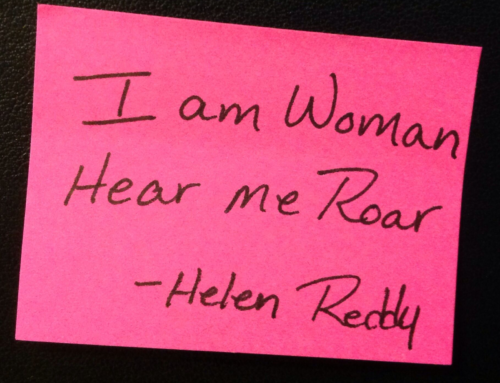This past week, I was speaking with someone who told me that she had just heard a recent statistic about loneliness. Did you know 4 out of 5 people express feelings of loneliness?
Now how can that be true? So many of us are feeling lonely and so few of us are talking about it.
Then, on two separate occasions in the same week, I heard others speak of loneliness – one in a book I just finished, “Strength to Strength: Finding Success, Happiness, and Deep Purpose in the Second Half of Life” by Arther C. Brooks and the other in a conversation in one of my women’s groups.
As per usual, if I hear something a few times within a short period of time, I believe it to be a wink for my next research exploration and potential for another blog.
Some say that loneliness is an epidemic in our society. Post the COVID-19 pandemic, I feel like many of us are still trying to figure out what is next and how to really reengage in a world still full of fear and uncertainty. I have had conversations with clients who express they feel they have experienced PTSD because of the pandemic.
Because this is a vulnerable conversation for so many, myself included, I would like to start with defining loneliness and then looking at some of the research. Finally, we will look at the relationship between loneliness and vulnerability.
What is loneliness?
Loneliness is a subjective feeling of social isolation, disconnection, or lack of companionship. It can be experienced even when surrounded by people or in a relationship and is often associated with negative emotions such as sadness, depression, and anxiety.
It’s important to note that while loneliness can be a difficult and painful experience, it is a common feeling that many people will encounter at some point in their lives.
While it is commonly associated with older adults who may experience social isolation due to the loss of friends and family members or physical limitations that make it difficult to engage in social activities, loneliness can be experienced by anyone – regardless of age, gender, race, or socioeconomic status.
It’s important to remember that what may cause loneliness for one person may not be for another. It’s also important to recognize that loneliness is a common human experience, and there is no shame in feeling lonely.
My son Charlie, an only child, would spend a tremendous amount of time by himself in the basement which created concern for me and his father. When we approached him to talk about it, he said, “I may be alone a lot but I am not lonely.”
Research on Loneliness
Loneliness has been the subject of much research in recent years, and here are a few recent findings:
- Loneliness can be just as bad for your health as smoking or obesity: A 2018 meta-analysis of 218 studies found that loneliness and social isolation were associated with a higher risk of early death, with the risk being comparable to that of smoking and obesity.
- Loneliness can be contagious: A study published in the Journal of Personality and Social Psychology in 2019 found that loneliness can spread through social networks, with people becoming more likely to feel lonely if their friends and family members are also lonely.
- Social media can increase feelings of loneliness: While social media can be a way to connect with others, studies have shown that excessive social media use can increase feelings of loneliness and social isolation. A 2020 study published in the American Journal of Preventive Medicine found that social media use was associated with higher levels of loneliness and depression.
- Loneliness can impact cognitive function: A 2020 study published in the Journal of Gerontology found that loneliness was associated with lower cognitive performance in older adults.
- Social connections can help protect against loneliness: Studies have shown that having strong social connections, such as close friendships and family relationships, can protect against feelings of loneliness. A 2021 study published in the journal Psychology and Aging found that having a positive outlook on aging and maintaining social connections can help protect against loneliness in older adults.
Overall, research suggests that loneliness can significantly impact both physical and mental health and that social connections and community support can help protect against feelings of loneliness.
Brene Brown – Loneliness and Vulnerability
Brene Brown has conducted research on the relationship between vulnerability, shame, and loneliness. She has found that people who are lonely often feel disconnected from others and believe that they are not worthy of meaningful connections. Brown argues that vulnerability is essential to breaking through this sense of disconnection and building the kinds of relationships that can help to reduce feelings of loneliness.
In her book “Daring Greatly,” Brown emphasizes the importance of being vulnerable and open with others as a way of building deeper, more meaningful connections. She argues that we need to be willing to take risks and be honest about our feelings and experiences – even when it feels uncomfortable or scary.
Brown also emphasizes the importance of cultivating empathy and compassion to build deeper connections with others. By being willing to see and understand others’ experiences, we can build bridges of understanding and empathy that can help to reduce feelings of loneliness and disconnection.
Overall, Brown’s work emphasizes the importance of vulnerability and connection in reducing feelings of loneliness. By embracing vulnerability and being open with ourselves and others, we can build the kinds of relationships that help us to feel seen and heard, and break through the sense of isolation and disconnection that can lead to feelings of loneliness.
Vulnerability and Loneliness
There is a strong relationship between vulnerability and loneliness. Vulnerability refers to the experience of being open and exposed, which can be both uncomfortable and rewarding. When we are vulnerable, we are more likely to connect with others on a deep and meaningful level, which can help to reduce feelings of loneliness.
However, vulnerability can also be a source of loneliness. When we feel like we can’t be our authentic selves or that we need to hide our true feelings, it can lead to disconnection and isolation. This can be particularly true for people who have experienced trauma, such as abuse or neglect, which can make it difficult to trust others and form meaningful relationships.
Research has shown that the ability to be vulnerable and to form meaningful connections with others is critical to reducing feelings of loneliness. In fact, some researchers suggest that the ability to form and maintain social connections is one of the most important factors in reducing loneliness. This is because social connections provide a sense of belonging and can help individuals to feel seen and heard, which can be particularly important for those who are vulnerable or marginalized in some way.
Overall, while vulnerability can be a source of both discomfort and connection, it is an essential part of forming and maintaining meaningful relationships that can help reduce feelings of loneliness. Being able to express vulnerability and connect with others in a deep and authentic way can be an important step in reducing feelings of loneliness and improving your overall well-being.
Personal Growth in Loneliness
“From Loneliness to Solitude to Loneliness Again” is a concept proposed by American social commentator and writer, David Brooks, in his book “The Road to Character.” In this concept, Brooks argues that loneliness is an experience that can lead to personal growth and the development of inner strength.
According to Brooks, loneliness is a painful feeling of isolation that can lead people to seek out social connections and form meaningful relationships. When people are able to do this successfully, they can move from loneliness to a state of solitude, where they are able to enjoy their own company and find meaning and purpose in their lives. This can be a positive experience that can help individuals develop inner strength and resilience.
Overall, Brooks’ concept suggests that loneliness can be a difficult and painful experience, but it can also be an opportunity for personal growth and the development of inner strength. By acknowledging and accepting these feelings, individuals can move towards a state of solitude and find meaning and purpose in their lives.
Yes, loneliness can be painful and the research shows that it can be detrimental to our physical, mental, and emotional selves. But through social connection and embracing vulnerability, we can minimize loneliness and even find an opportunity for personal and spiritual growth in the process.




